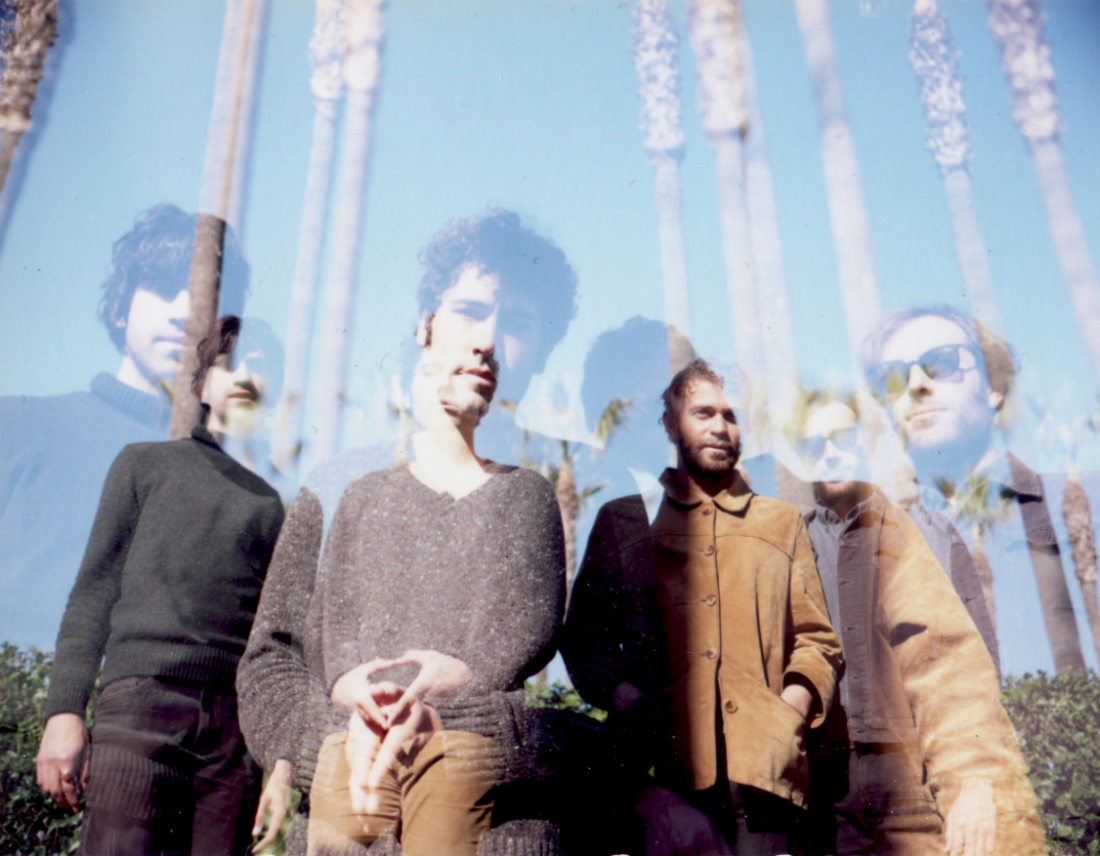California is important to psych-garage band Allah-Las. The Los Angeles quartet formed while its members — drummer Matthew Correia, bassist Spencer Dunham, and guitarists Miles Michaud and Pedrum Siadatian — were working at the city’s famous Amoeba Records. But it’s not a mere matter of geography. The attitude and the sonic history of the Sunshine State factor heavily in The Allah-Las’ sophomore record Worship the Sun, which evokes lapping waves, warm sunsets and garagey romps down the Pacific Coast Highway.
Mountain Xpress: You’ve got a song on the new record called “Ferus Gallery,” the most important spot for LA art in the ’60s. How much of California — and your experiences in California — informs the sound of the band?
Pedrum Siadatian, guitar: It informs it so far as your surroundings inevitably make their way into who you are and what you create. I’m sure if we were based out of London or New York City, our sound would be very different.
Do you think you’re particularly affected or informed by California and its musical history? (In addition to The Beach Boys, I can pick up on a lot hints of Gram Parsons/Flying Burrito Brothers and Love on Worship the Sun.) Do you think that being in a different atmosphere, another town, would change your sound?
Yeah, I do; a different mindset and setting can be inspiring in new ways.
So the story goes that you met at Amoeba Records in LA. Did your time there — with all that access to rare music and an environment of fellow music lovers — shape what you do with the band at all?
Yeah, Amoeba allowed us to explore music and genres that we were into and incorporate elements of what we liked into the music we were making.
How much of that expanded knowledge plays into the Reverberation radio series you do? There’s a lot of deep-cut and relatively obscure stuff on there — I don’t see many shows, podcasts, etc., dropping Kim Jung Mi next to The Clientele, or Jackie Mittoo one week then Kraftwerk the next. How — if at all — do some of those further-reaching influences get into your music?
They don’t necessarily all make their way in there. Some music we can just admire and enjoy as listeners, but sometimes there’s a tone or instrument your hear in a song that you can reference when you’re recording your own thing.
You worked with Nick Waterhouse for your self-titled debut, and again for Worship the Sun. Why did you decide to work with Nick Waterhouse again? What does he bring to the table?
We like working with Nick because not only is he meticulous and knowledgeable about what he does, but he’s also a good friend of ours. He does a lot of research to pick out mics, sort out spacing and where to set up and let us know when a take is a keeper or not.




Before you comment
The comments section is here to provide a platform for civil dialogue on the issues we face together as a local community. Xpress is committed to offering this platform for all voices, but when the tone of the discussion gets nasty or strays off topic, we believe many people choose not to participate. Xpress editors are determined to moderate comments to ensure a constructive interchange is maintained. All comments judged not to be in keeping with the spirit of civil discourse will be removed and repeat violators will be banned. See here for our terms of service. Thank you for being part of this effort to promote respectful discussion.